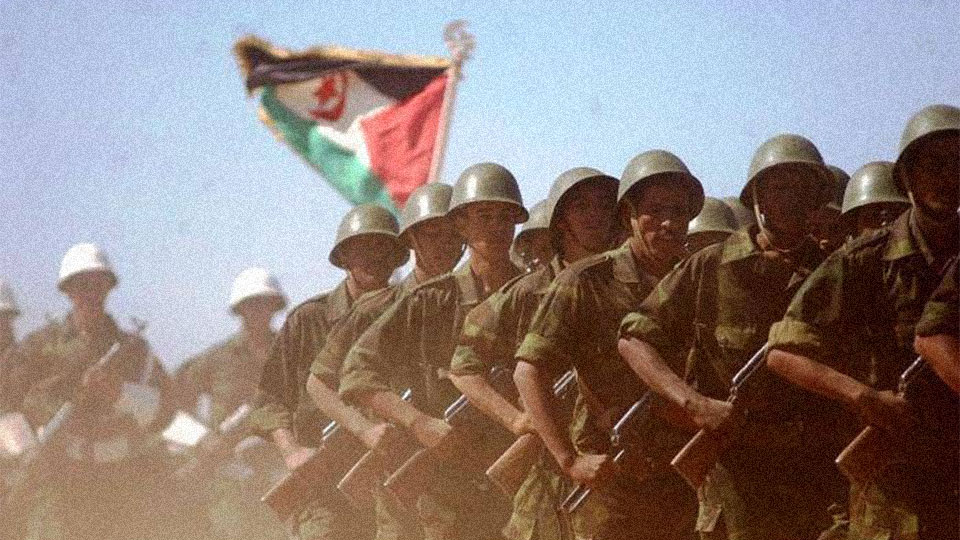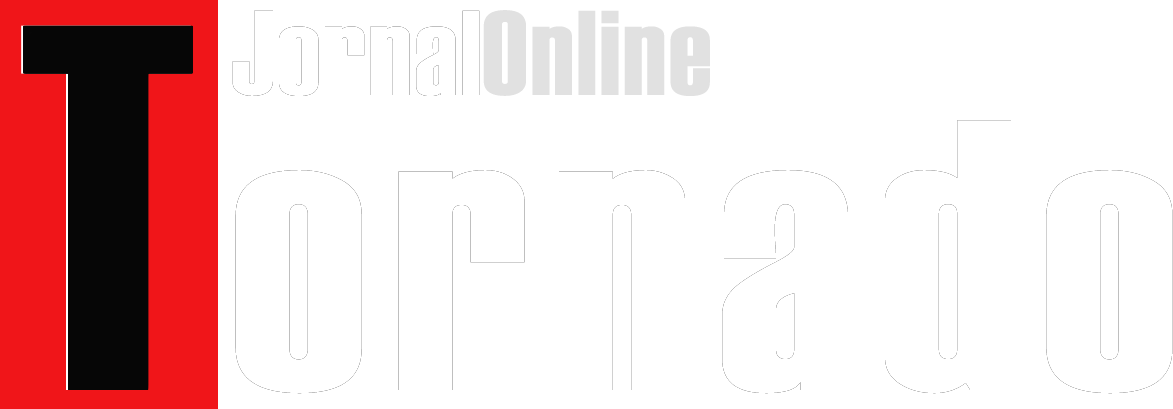Polisario Front Secretariat issues General Alert calling on the population to be mobilized and vigilant
Yesterday, November 7, an extraordinary meeting of the National Secretariat of the Polisario Front was held, which decided to issue a final declaration announcing the state of emergency and calling on all Saharawi to be on the highest alert and mobilized for what might happen. for all eventualities.
This meeting took place after more than two weeks of protests and non-violent demonstrations by the Saharawi population in the Moroccan illegal breach in El Guergarat and in several crossing points of MINURSO (United Nations Mission for the Referendum of Western Sahara) along the Wall Moroccan military separation.
Civilian demonstrators, men, women and children demand an immediate closure of the illegal breach that Morocco opened in violation of military agreement no. 1 and which has been the subject of criticism by the United Nations before António Guterres took office as Secretary General.
The unarmed Saharawi have demanded the closing of the breach and the holding of the Referendum, which should have been held in 1991 and is continually hindered by Morocco, which only s accepts its own autonomy plan. Morocco has daily reinforced the contingent with armed troops present in the illegal breach where MINURSO is also located but which has been in tune with the Moroccan side, which has further aggravated the demonstrators’ indignation. In several videos the protesters stated that they would no longer talk to MINURSO, which stands alongside the Moroccan military and is trying to persuade the Saharawi to reopen the illegal breach. MINURSO vehicles, which have Moroccan license plates despite not moving in legal Moroccan territory, have also been the cause of constant protests by Saharawi.
While unarmed Saharawi are just spending groceries and hours of using their phones, Morocco is losing millions with the closing of the breach and the consequent blocking of the traffic of both goods and drug trafficking and Spain, which remains the de jure administrator of the territory, already has 8 fishing boats blocked that operate illegally in the Saharawi waters. The displacement and strengthening of the Moroccan military contingent has also increased costs considerably.
The statement of the Polisario Front is clear:
After learning of the presence of concentrations of Moroccan troops during the previous two days in the confrontation of defenseless Saharawi civilians protesting against the illegal breach in Guergarat, in the face of the United Nations Mission for the Referendum in Western Sahara (MINURSO), did not prevent Morocco from continuing with this violation, the National Secretariat of the Polisario Front, in view of this dangerous development and based on the Fundamental Law of the Front, in particular in articles 97, 98 and 99 and the SADR Constitution, declares the state of emergency and appeals to the Saharawi people, through all their presence, movement and state institutions, to be at the highest levels of vigilance and mobilization to face all eventualities, led by their vanguard, Polisario Frente and its heroic army”
The Saharawi side, although condemning the continued occupation by Morocco of parts of the territory of the Saharawi Republic, a member of the African Union, on the one hand, and its persistence in trying to circumvent what it signed with the Saharawi part under the auspices of the Nations United Nations and the Organization of African Unity / African Union, on the other hand, holds the Kingdom of Morocco responsible for what may result from this dangerous and aggravating situation”.
The status quo can only be overcome with the submission of the Kingdom of Morocco to international legitimacy and with the empowerment of the Saharawi people to exercise their inalienable right to self-determination, independence and sovereignty over their entire national territory”.
António Guterres decided to change the terminology of his predecessors and started to accept the illegal breach as an acquired fact, calling it a route with normal traffic of goods and people in his last report to the United Nations Security Council.
The report by the Secretary General, which was of Moroccan delight, did not reflect at least the situation experienced by the Saharawi population in the occupied territories, showing an absolute ignorance of both the serious violations of human rights and the illegal looting of natural resources and ignores the opening of consulates illegal under international law and which also constitute a violation of military agreement no. 1 and the ceasefire agreement as well as the constitutive act of the African Union.
Resolution 2548/2020, subsequently approved by the Security Council on 30 October, repeated the UN Secretary General’s report almost word for word, even repeating the characterization of the situation on the ground as a “calm situation”.
Both the Secretary General’s report and the Security Council resolution were the last straw that spilled the Saharawis’ patience.
The report and the silencing of serious violations and protests in the illegal breach only highlight the urgent need to include a human rights mandate in MINURSO and confirm the assessment of the Saharawi population that characterizes MINURSO as friends of Morocco, tourists and useless.
Over the years, MINURSO has on several occasions called on the occupying forces to hand over peaceful Saharawi protesters who attempted to either deliver a letter to them or protest by demanding the referendum to be held at the “peace” mission facilities. This “surrender” of Saharawi to the occupying forces is done with the full knowledge that they will be tortured and imprisoned. (see article Ali Saadoni, the life of a Saharawi activist in occupied Western Sahara)
Today, 10 years after the dismantling of Gdeim Izik, we have to mention that the members of the Council seem to lack information about the situation of political prisoners and especially the Gdeim Izik group that have received provisional measures, decisions and opinions issued by UN human rights mechanisms and not respected so far by the Kingdom of Morocco, which continues to torture political prisoners.
Both the Russian Federation, a permanent member of the Security Council and South Africa denounced the undemocratic way in which the “discussions” on Western Sahara took place and the preparation of the final report which did not take into account the changes proposed by the members of the SC . The so-called “group of friends” works with the CS and is composed of the USA that is the penholder, France, Spain and the United Kingdom. The group is in reality the one that writes the resolutions.
n its explanation of vote, South Africa criticized the working methods, recalling that “it has consistently raised its concern that the” negotiation process “of the draft resolution, through the Group of Friends, remains an obstacle to making progress on the Western Sahara dossier and undermines the Council’s working methods. ”
South Africa revealed that generally “a preliminary text is presented to Council members, who have to accept it as an accomplished fact, despite the fact that most of us have been elected to serve on the Security Council and have the responsibility to get involved in all matters on the Council’s agenda. ”
The Russian Federation emphasized in its explanation of vote that “in recent years, resolutions on the renewal of MINURSO’s mandate have received amendments that, in our opinion, affect the Security Council’s impartial and unbiased approach to the issue of Western Sahara. ”
It further explained that the draft resolution had a “drafting process that was neither transparent nor consultative” arguing that “none of our considerations of principle and well-founded, including those of a compromising nature, to which we have repeatedly drawn attention on the American side, was taken into account. A whole range of practical proposals articulated by other members of the Council was also left unanswered. ”
As a result, underlined Russia, “the text remains unbalanced. All this adds to doubts about the agreements on the informal drafting of countries’ files in the Security Council” and recalled that “in recent years, resolutions on renewal MINURSO’s mandate received amendments that, in our opinion, affect the Security Council’s impartial and unbiased approach to the issue of Western Sahara.”
And they end the statement by warning that, “replacing the fundamental principles of the Western Sahara solution with general observations about the need to” stick “to realistic approaches and seeking compromises produces ambiguity, undermines confidence in our work and obscures prospects for resumption of the political process .– the attempt to boost the peace process using language that confuses the previously agreed parameters of the Western Sahara peace plan brings the opposite result. We had not agreed to this change before and were unable to support it today.”
The positioning of Guterres and the CS due to the USA and France has led to continuous support for occupation through inaction since 1991 by the United Nations, which has allowed Morocco to change the demographics of the occupied territory with the introduction of hundreds of thousands of settlers , the forced impoverishment of the Saharawi, the daily theft of Saharawi natural resources and violation of human rights with kidnappings, violations, home invasions and destruction of property, Saharawi cultural eradication, arbitrary detentions, torture. All of these violations are well documented and condemned, having been the subject of legal decisions at international level (CJEU, South African Supreme Court and others) in the case of natural resources and provisional measures, opinions and decisions of the human rights mechanisms by the United Nations itself.
The Polisario Front has repeatedly warned that if there were no concrete and practical actions on the ground, it would be obliged to reassess the ongoing political process. In fact, the ongoing political process, read negotiations between the parties with personal envoys, and what is called confidence-building measures, which is nothing more than a program to reunite half a dozen families who are separated by the wall, is far from being a process that aims to enforce the ceasefire agreement agreed between the parties and that Morocco refuses to honor.
In the international press many times, and wrongly, it is stated that the referendum is not carried out due to disputes over who can vote and the census of the Saharawi population.
In fact, the Polisario Front even proposed the participaton in the vote of Moroccan settlers in the occupied territories, a proposal that was rejected by Morocco. Morocco only accepts a supposed plan of autonomy, but does not want the Saharawi people to choose. The proposal for autonomy would be one of the questions in the referendum, but Morocco knows that the Saharawi population wants Morocco to leave immediately the territory, which the Kingdom has occupied illegally and violently since 1975.
The Polisario Front is not separatist because you cannot separate something that has never been together, it is a National Liberation Movement of a country that has a large part of its territory under Moroccan military occupation after the 1975 invasion.
Morocco does not have any sovereign ties as was mentioned in the International Court’s decision in October 1975, days after this decision was made public, Morocco invades the territory.
These facts cannot be changed, these facts and the more than 60 resolutions give all the legitimacy to the Polisario Front to defend its homeland and its population.
Since 1991, the Polisario Front and the Saharawi people have respected the ceasefire agreement and await the referendum, how much longer should they wait while they see their country being exploited, the Saharawis being decimated and tortured?
The Saharawis’ patience has come to an end, the international community and the United Nations in particular have had the opportunity to resolve this conflict in a non-violent way, but it seems they are not interested in it.
Saharawi have the support of countries such as Algeria, South Africa, Namibia, Zimbabwe, Nigeria, Tanzania, Angola, Mozambique, Timor-Leste, Cuba, Bolivia, and many others who repeatedly warn of the impasse in the Nations Nations.
Algeria passed constitutional amendments on 1 November when Articles 28 and 29 of the constitution were amended to allow cross-border operations with the approval of two-thirds of its parliament and under the supervision of the Arab League, the African Union and the United Nations.
In view of this scenario, we await the reaction of the United Nations and the African Union to prevent yet another bloody conflict that will affect the entire Sahel area.

Receba a nossa newsletter
Contorne o cinzentismo dominante subscrevendo a Newsletter do Jornal Tornado. Oferecemos-lhe ângulos de visão e análise que não encontrará disponíveis na imprensa mainstream.




